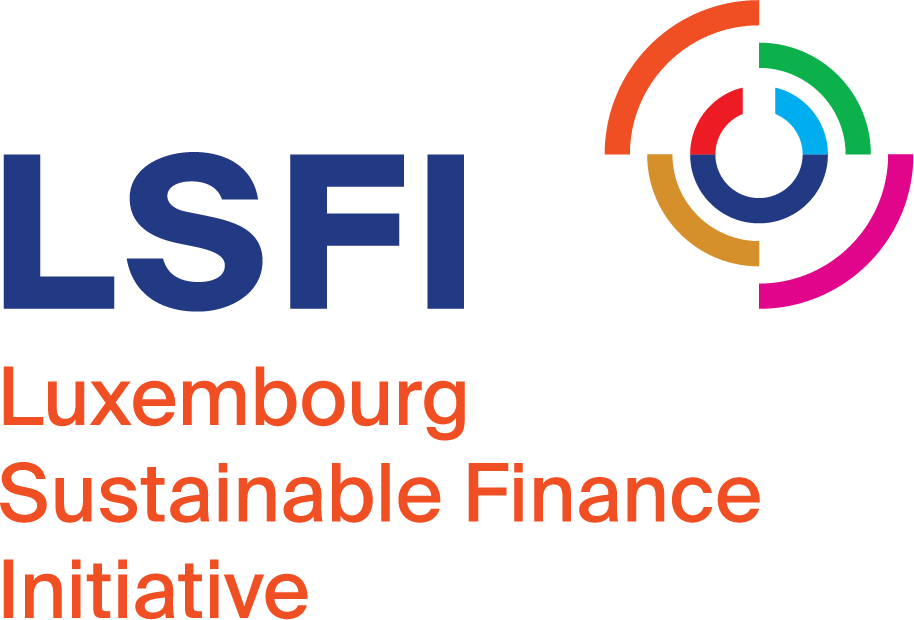Analysing the greenhouse gas emissions associated with financial activities is paramount in the transition towards sustainability. By doing so, financial institutions better understand their portfolios by gaining an overview of their alignment with the Paris Agreement goals, the climate impact of their investments or the sectors they contribute the most.
This year, the LSFI has launched the “Climate Reporting and Measurement” working group, which aims to coordinate actors active in climate measurement and reporting. For this month’s edition, we have interviewed Rudy Belli, Chair of this LSFI working group and Head of Sustainability at Spuerkeess. We have discussed why it is relevant to have a group of experts discussing how to advance further in this field, what he expects to achieve, and the main difficulties encountered when addressing this topic.
Luxembourg Sustainable Finance Initiative (LSFI): You are the Chair of the recently launched LSFI Working Group on Climate Measurement and Reporting. Why is it relevant to have an expert group discussing how to advance further and coordinate this topic?
Rudy Belli (RB): As the finance and banking sectors are also in the midst of a sectorial transitional towards the active integration of ESG factors and sustainability principles, including climate change mitigation and adaptation, it is important to map and identify material climate-related MRV (measurement, reporting, and verification) resources and properly disseminate among all relevant stakeholders.
As numerous elements pertaining to climate-related risks and opportunities, either at the asset level or operational, are highly technical in nature, therefore, robust engagement with a broad group of experts represents a sensible step to account for the complexity of the subject matter.
In order to assure that any future policies and frameworks are scientifically robust while also being practical in their use, it requires discussion and coordination as a lot of the aspects of climate measurement and reporting still remain novel and challenging in terms of integrating them at the institutional level.
In combination with the growing regulatory requirements within the EU and Luxembourg regarding ESG and sustainability matters, it is important for the finance and banking sectors to expand their collaborations and knowledge exchanges with genuine subject matter experts and among all affected stakeholders.
(LSFI) What is the added value for financial institutions in measuring the climate impact of their investments and the alignment of their portfolios to the Paris Agreement?
(RB) The most recent 2023 Synthesis Report on Climate Change by the IPCC (Intergovernmental Panel on Climate Change)[1] has documented once again the irrefutable global scientific consensus that anthropogenic climate change, mostly caused by fossil fuel-related GHGs (greenhouse gas emissions), will affect human life and planetary ecosystems in very devasting ways. These changes have already resulted in a global warming of our atmosphere of 1.2ºC versus pre-industrial temperatures. However, the latest IPCC report concludes that a very aggressive reduction of global GHG emissions could still limit global warming in line with the landmark 2015 Paris Agreement.
In the Paris Agreement, an overwhelming majority of nations have agreed to reduce their domestic GHG emissions in line with carbon reduction pathways that would limit global warming between 1.5ºC and 2ºC versus pre-industrial times. While this will help to mitigate the catastrophic planetary events that would occur in +2ºC warming scenarios, it is important to note that even the current and projected global warming will still lead to severe impacts, such as glacier melts, sea level rises, prolonged drought events, or more extreme weather patterns.
This means that financial institutions will have to measure the portfolio-level risk exposure to both physical climate risks, and transitional climate risks, the latter pertaining to policy and technology-related risks from societies trying to mitigate or adapt to climate change.
This informs governments and investors of the portfolio-level climate-related risk exposure, including the overall carbon footprint and whether it aligns with the assumed carbon budgets for each company under the Paris Agreement. This information can reveal potential transitional risks, such as the sudden rise of carbon prices, and allow financial institutions and portfolio managers to render their assets more resilient against such climate-related risks.
(LSFI) In your role as Head of Sustainability at Spuerkeess, you have been involved in the bank’s effort to assess its climate impact. What are the main difficulties you have encountered when you address this topic?
(RB) I would have to say that data quality has been one of the largest challenges I encountered, which pertains both to identifying and accessing reliable sources with sufficient coverage, and also the evaluation of raw data.
The data quality issues are also strongly related to the next challenge, which involves the overall complexity of the climate and environmental science underpinning ESG and sustainability data. The finance sector sees itself now confronted with a plethora of new non-financial risk assessment metrics and sustainability-related performance indicators that are strongly rooted in climate and environmental science. This means that traditional finance experts are now in sort of a professional transition of their own, having to not only acquire solid foundational knowledge around climate and environmental issues, but also start integrating external non-financial subject matter expertise to higher degrees as it might have been the case in the past.
This solid foundational knowledge, in combination with the capacity to properly evaluate the quality of ESG data, is needed to critically assess the performance of companies and engage them in case there are data gaps, inconsistencies, or potentially unaddressed climate-related risks.
(LSFI) Do you have any tips for your peers regarding how you overcome those?
My second recommendation is related to the first one, insofar that we have also created a Scientific Advisory Board (SAB), composed of genuine environmental and sustainability experts, covering a large spectrum of scientific disciplines, with a strong emphasis on natural sciences. The SAB was established to foster new connections with experts from ESG and sustainability-related disciplinary areas that financial institutions seldom have had internal resources for, but also to obtain regular feedback on our ESG and sustainability-related products, services, and internal policies, to ensure the highest possible level of scientific robustness, especially for a growing awareness around greenwashing among EU regulators.
Furthermore, one final tip would be that financial institutions start applying alternative methodological instruments, such as PCAF, for the measurement of financed GHG emissions in the absence of reliable company data. These methods take into account the importance of indicator-based «data quality scores», which allow us to understand the level and quality GHG emission calculations and whether they are audited, or if approximations such as sectoral averages are used. This constitutes an important step towards transparency when reporting climate related data. Other instruments include GHG data from external service providers to direct engagement with companies. These steps are then complemented through scientific community engagement, in which our Scientific Advisory Board (SAB) directly informs certain strategies and policies, for example setting sectoral transition pathway targets using the TPI (Transition Pathway Initiative), which is a straightforward methodology which refers to sectoral IEA transition benchmark pathways.
(LSFI) What do you expect the LSFI Working Group on Climate Measurement and Reporting will achieve?
(RB) The LSFI Working Group on Climate Measurement and Reporting represents an important knowledge exchange and coordination platform to allow interested stakeholders from the financial sector to engage with a broader group of subject matter experts who possess complimentary expertise in areas related to climate change. This includes, among others, scientists, NGOs, government representatives, and financial sectors representatives.
The topical complexity and wide spectrum of required knowledge when it comes to climate measurement and reporting necessitates solid coordination in order to assure that financial institutions in Luxembourg have access to the best and most practical tools, instruments, and frameworks that allow them to measure and report portfolio-level climate data in a scientifically robust and regulatorily compliant manner.
This approach would nicely align with existing ESG and sustainability-related subject matter expert engagement, such as an internal Scientific Advisory Board, or forthcoming initiatives such House of Sustainability by the « Chambre de Commerce », which will promote sectoral standardized ESG approaches. This will further complement our engagement with relevant associations such as ABBL, ACA , ALFI and other finance-related stakeholders to help to disseminate useful guidance among their members.
…….
Notes
[1] https://www.ipcc.ch/report/ar6/syr/





